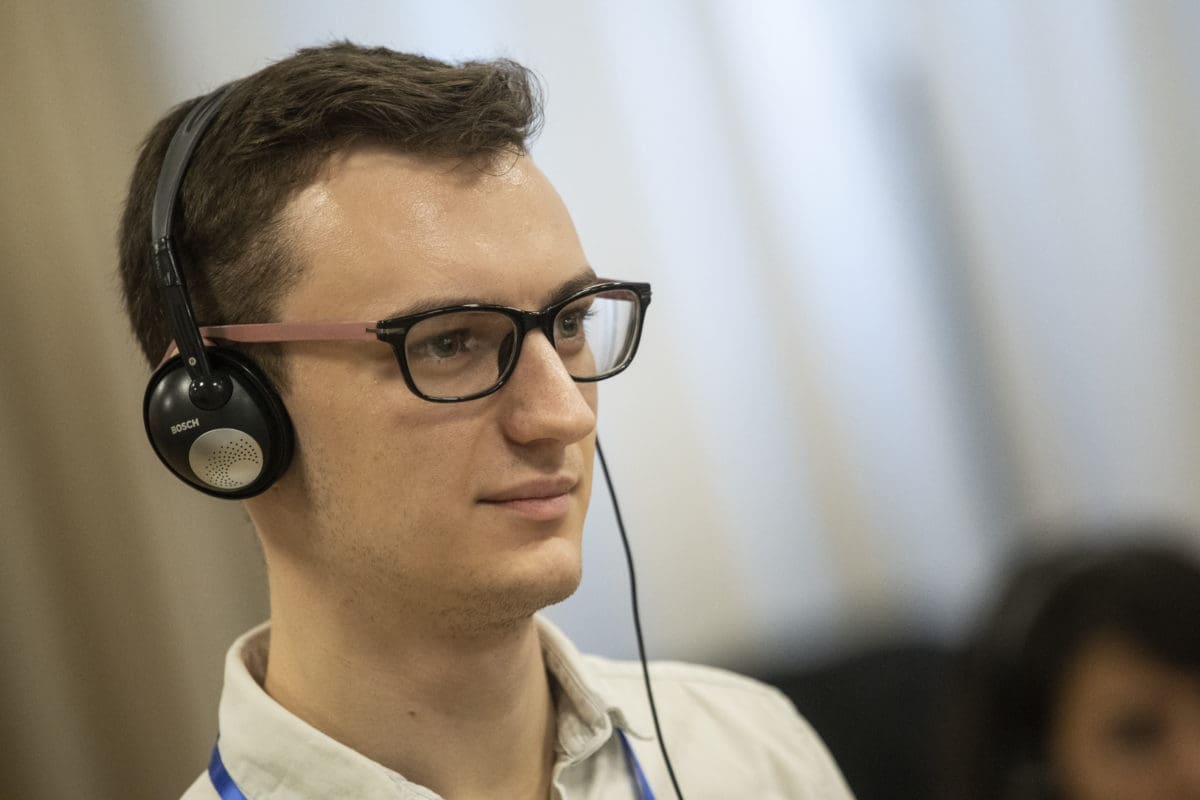
I knew him as Rocco, his nickname. Every week, we’d chat. His ‘patch’ was outside Sainsbury’s, the main supermarket in Cambridge. He sat unimposing, legs crossed, greying beard. He always wore a woollen hat, even when the sun was shining. Rocco was up early and stayed late, when he’d go off to find somewhere to sleep.
Rocco’s patch was busy, right in Cambridge’s old town. The pavement was bustling, adjacent to a cobbled, narrow one-way street, although cyclists ignored that and went both ways. He sat by where the supermarket trollies were parked, his back against their railings. A set of bike racks – usually full – was fixed to the ground a metre in front.
A couple of strides across the narrow road was Sidney Sussex, one of the older colleges which make up Cambridge University. Through its ancient wooden doors, students hurried in and out. Tourists were turned away by men called porters, who guarded the entrance.
It’s common for street sleepers to be ignored but Rocco wasn’t. I often passed that way as I worked on a student bar round the corner. You’d see people, mostly young, crouching and chatting. He said a couple of students living in a flat nearby invited him for a meal. Occasionally he watched football in the pub with a few locals. And at Christmas, he’d go to his brother’s house.
Often, people came up and offered change or a sandwich. He gratefully received their charity but never asked for it. Gentle and kind, Rocco appreciated those who took time out to speak. He sometimes gave me the food offered by others when he didn’t want it.

In my third and final year at Cambridge, Rocco told me some great news. He’d finally registered for government social support, and found a place in a local caravan park. I congratulated him. Rocco had – remarkably – quit drugs and then drink even while sleeping on the street. Homeless for at least a decade, that was over. He looked younger and then, within a couple of days, I didn’t see him again. I left Cambridge, came back to London, and occasionally wished Rocco well in my prayers.
Last summer I returned to my old university for the first time since graduation. I was there for a ‘May Ball’, an extravagant overnight party. I organised one when a student so received a free ticket.
Dressed up smartly with a few friends, I was walking across town to the queue, in a bit of a hurry. As I passed the supermarket at around 9pm, I noticed two students stood with flasks of hot water and bags bursting with sandwiches. I recognised them as the SVP outreach team, because I used to tour the streets with that same group. You’d find them every night, pointing rough sleepers to local services and distributing food and hot drinks.
And then, as I got closer, I recognised the worn woollen hat and greying beard on the man they stood by. Rocco. I’d like to tell you I was surprised, but I wasn’t. If you work in homelessness, it’s a familiar story. I’d also like to tell you I stopped to chat and offer some support, however small. But I didn’t, I hurried on to my party. And I regret that.
Diaries of a Vincentian takes a closer look at some of the more personal experiences of Vincentians working with homeless people, slum dwellers and refugees. They shine a light on the moments that inspired us, the situations that left us speechless and shocked, and the people that crossed our paths and showed us that more must be done.
What connects them is that Vincentian commitment to the poorest of the poor; and the hope that as a Family, we can do more.

Ewan Day-Collins